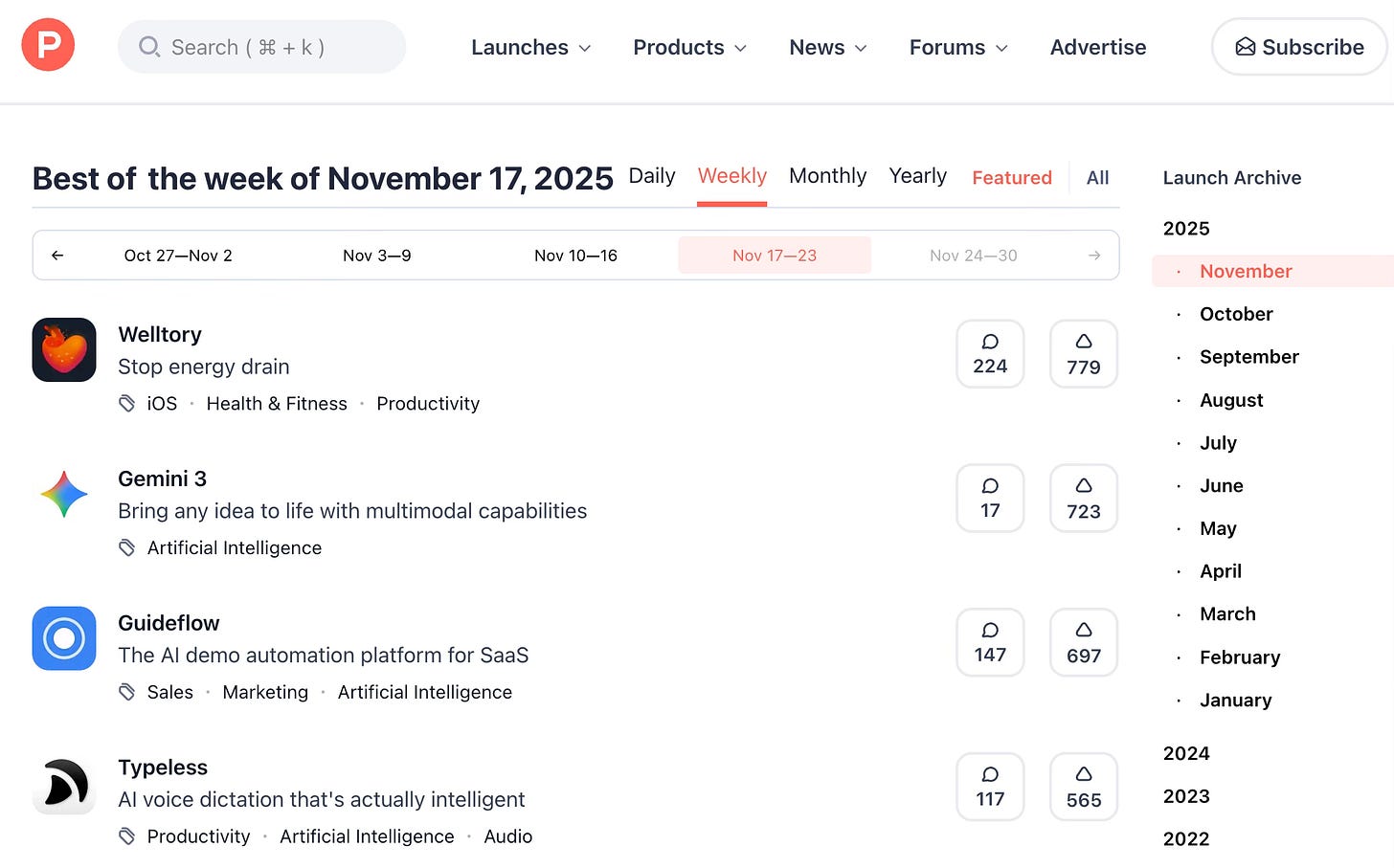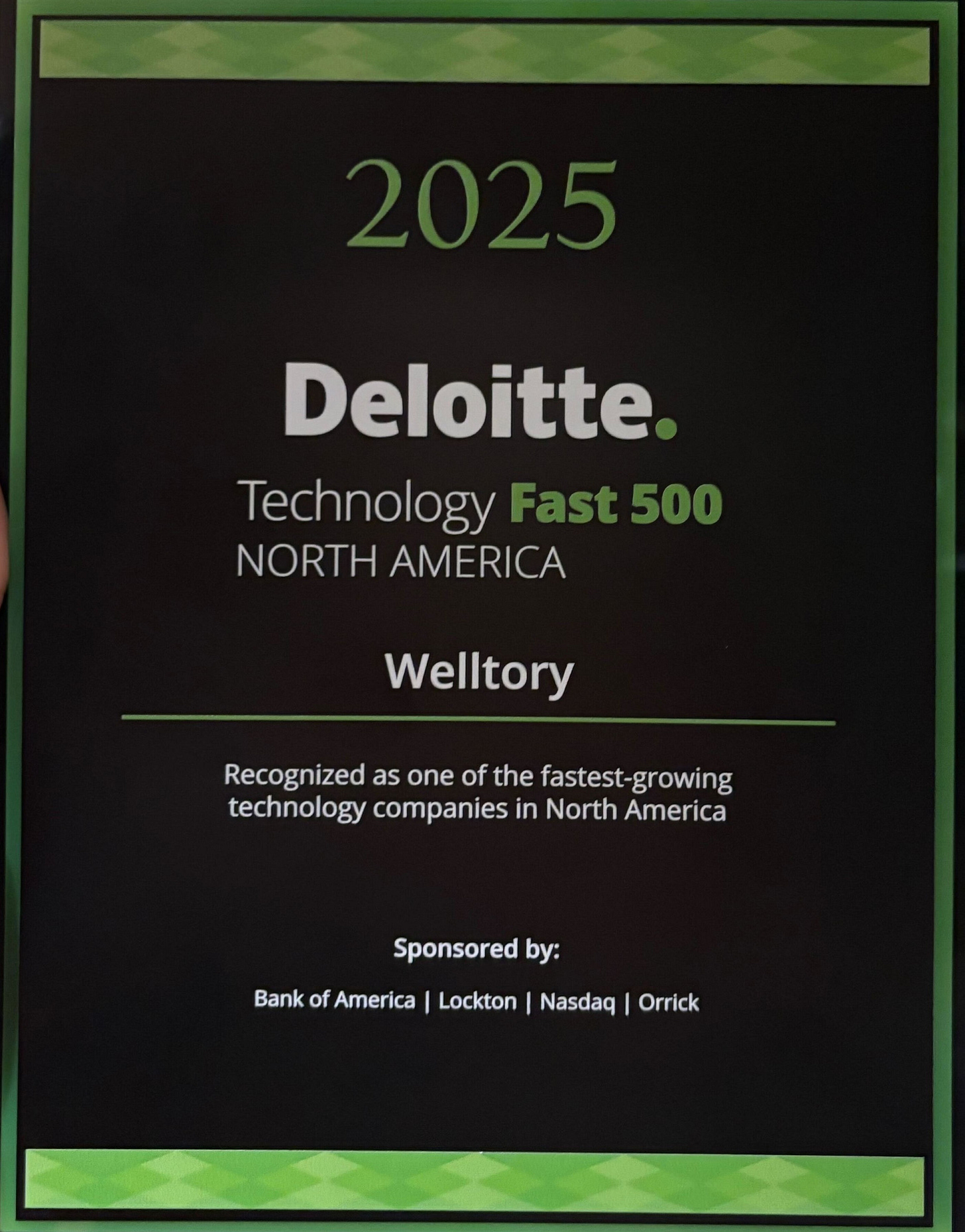When Your Company Stops Being You
And Why That’s the Best Thing That Could Happen
This week, I didn’t see our Product Hunt video before it went live. Not because I wasn’t invited to the discussion—I was just buried in other critical priorities, and the team launched without me. We won the day. Then the week. Outranked Google and Oura in our category. I learned about it after the fact, reading comments where our engineers were answering questions about features they’d built with their own hands.
That’s the moment you realize: you no longer have a startup. You have a company.
Numbers That Don’t Flatter Your Ego (But Should)
Deloitte Fast 500 for the second year running. Ranked 31-32 among the fastest-growing companies in the Bay Area—and that’s about growth rate, not revenue or scale. Yes, it’s good for the entrepreneurial ego. But honestly, these rankings are just external validation of what’s happening internally.
The real benchmark for me isn’t competitor comparison. It’s when critical processes start working without your direct involvement. When a marketing launch runs through Veronika and her team. When Core Value presents research results I hadn’t seen at draft stage. When an engineer who wrote the algorithm answers questions in Product Hunt comments, not the founder who sells it.
I sometimes think of the company as a unicorn—in the original mythological sense, not the venture capital one. It’s charging toward its own manifestation, following its own trajectory, building its own momentum. We’re all just trying to keep up. Sometimes we ride in the saddle. Sometimes we grip the pommel. Sometimes we get dragged along the road but refuse to let go. Because the mission exists whether you’re keeping pace or not.
A Feature That Might Be More Than a Feature
Now for what actually matters. And here I’ll be maximally careful with my language, because claims require evidence, and what we have right now is a our thought supported by physiological mechanics.
Our team (and particular genius scientist) developed a system for analyzing and managing sedentary stress—the kind that accumulates during Zoom calls, deadlines, and endless email chains. Stress that happens in a motionless body. Without physical discharge.
Here’s what we know from physiology:
Acute psychological stress causes vasoconstriction—narrowing of blood vessels
Chronic stress without physical activity leads to endothelial dysfunction
Repeated episodes of vasoconstriction create micro-damage to vascular walls
This micro-damage is one mechanism in the development of atherosclerosis
To simplify: every time you sit through a tense meeting, your blood vessels sustain micro-trauma. The accumulation of such trauma increases the risk of cardiovascular events.
Now imagine you have a skill—trained and practiced to automaticity—to recognize this stress and discharge it physiologically. Not “breathe and calm down,” but actually interrupt the vasoconstriction cycle before the damage sets in.
Technically, this is real-time heart rate management. But conceptually, it’s a skill you can develop. Like learning to touch-type or drive a car.
I call this a “preventive vaccine against cardiovascular disease” in my private notes, where I can be more liberal with phrasing. But if we want to talk about this publicly—we need a trial. We need to show not just correlation between stress management practice and subjective wellbeing improvements. We need to show clinically meaningful outcomes: reduction in inflammatory markers, improved endothelial function, altered trajectories of risk scores.
This is difficult. It takes time. It’s expensive. But if it works—we’re not talking about a mindfulness app. We’re talking about a scalable preventive intervention for millions of people with sedentary lifestyles.
Momentum and What to Do With It
Right now I feel momentum—and it’s not about awards or Product Hunt rankings. It’s about the alignment of several factors simultaneously:
We have a team capable of operating autonomously
We have technology that might be significantly bigger than it appears
We have a user base and ability to validate hypotheses
We have the time and resources to think strategically rather than just survive
I don’t know if our hypothesis will prove correct. I don’t know if we’ll be able to design a study that convinces the scientific community. Stop. Nope. I don’t have to be too humble here. I know. But it will take some time to prove it to the world.
I am happy to be on this road with our cute little unicorn and my awesome team.




So proud of Veronika, You and the Team! Congrats!